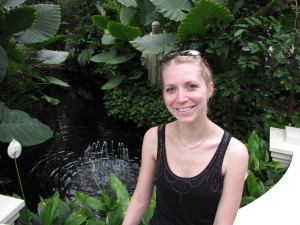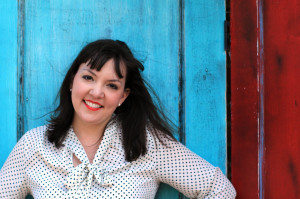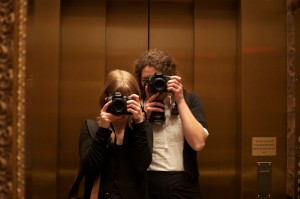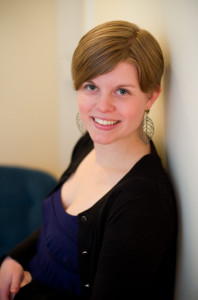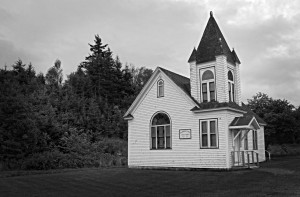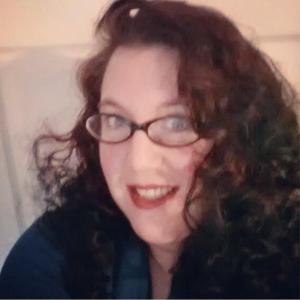This is our fifth year in Columbus, OH and among the various tasks I’ve taken on in this city, perhaps the strangest one is greeting people on their way into our church.
I used to dread driving through Columbus during my 12-hour sojourn to college. I passed through the rolling Appalachians, the hills of eastern Ohio, and then the relentless flat that dominates central Ohio.
 As I wove my way through the interchanges of Columbus before hitting the farmland again, I often wondered how anyone in their right mind would want to live surrounded by concrete and corn in a flat landscape bereft of salt water and mountain peaks. Twenty-somethings sure can be opinionated despite the limited perspective of the highway and a few years of life experience.
As I wove my way through the interchanges of Columbus before hitting the farmland again, I often wondered how anyone in their right mind would want to live surrounded by concrete and corn in a flat landscape bereft of salt water and mountain peaks. Twenty-somethings sure can be opinionated despite the limited perspective of the highway and a few years of life experience.
These days I call Columbus, Ohio my home—at least for now. I never thought I would say that. My wife’s career path landed us in Columbus for a temporary time that is quickly drawing to a close.
When I hold the door open for families once a month at church, it’s as if I’m a foreigner who helps others settle down and find their places. I’m a foreigner who didn’t choose to live here, who has struggled to find his place, and who knows he’ll be moving on soon. Yet I welcome families with small children, young couples, and blended families of every shape and size to a place where I hope they’ll feel comfortable staying, even if my mind is frequently occupied with our eventual leaving.
This morning our kids weren’t in full-on revolt, so I left my wife at home to get them out the door on her own, while I headed to church early to pray with the other greeters and pastors. We are interceding for an elementary school-aged child in our church who had a rough week in school, and we pray that she’ll have peace, courage, and good friends. We also pray for a resolution with her teachers.
While we pray, my mind is still trying to get past the struggle of getting my three-year-old son into his church clothes that morning, and then I begin to wonder where he’ll go to school next fall and if he’ll have a difficult transition. It probably won’t be in Columbus. Perhaps he’ll finally get past his pajama obsession by then.
“I want to wear my pajamas to church!” He shouted at me while I held out khaki corduroys and a plaid shirt. He would never leave the house in anything other than his fleece pajamas if we didn’t beg, barter, and bribe him to wear clothes. Reluctant though he is to let us inch the zipper down and unsnap the button at the top, the promise of switching back to his pajamas after church placates him.
Our pastor has been praying for the struggling girl while I’ve been trapped inside my own head with fleece pajamas. If anything, I need to go to church in order to be challenged to move beyond my own difficulties and concerns. My worries about my child’s future is someone’s struggle today. I also fight to find time to greet because I’m trying to see people eye to eye, face to face, when my work day in, day out, involves computer screens, social media profiles, and brief bursts of video.
There are many reasons why I have struggled to feel at home in Columbus. It’s not just my prejudice about landscape. It’s about a season of life where money, time, sleep, and just about everything else appear to be in short supply. We have two small children, two careers in transition, and days that are always scheduled to the minute. I wouldn’t change a thing about my work or my family. It’s just the season we’ve been in for these five years of transition, but it sure has been hard to be present for others.
*******
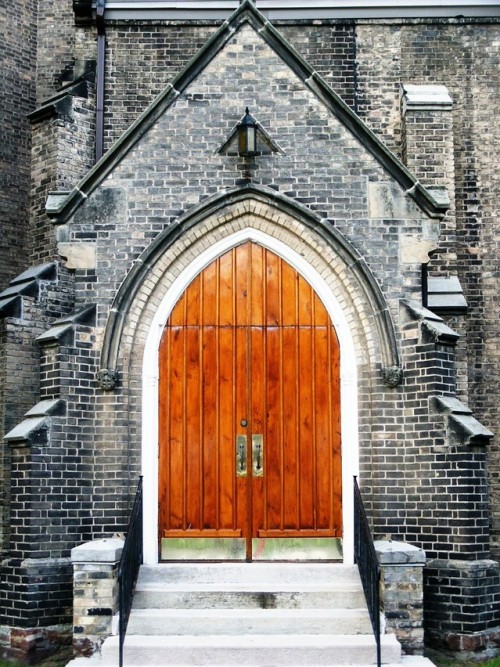 As the greeters set out to our assigned posts, I’m the lone greeter for the main parking lot. Twigs shoved into the doors prop them open.
As the greeters set out to our assigned posts, I’m the lone greeter for the main parking lot. Twigs shoved into the doors prop them open.
A single mom with a pack of boys leads the charge up the steps, and they flash through the door before I can get a word in. A young couple I have yet to formally meet despite attending for years follows, ducking past my greeting. I finally catch the eyes of the next few couples, and we chat before they run off to keep track of their kids.
Oftentimes I try to keep things short, especially with the elementary school-aged kids.
“Hey, I love that super hero shirt!” I say to one young boy.
“Are you a ballet dancer?” I ask a girl in a tutu.
I interact on Facebook with quite a few people from our church, but some only engage in conversation with me when I’m a greeter, which is one of the stranger aspects of of our brave new world of social media and in-person Christian community. While greeting I also have a chance to follow up with the people from our church I run into during the week at the clunky, neglected cafe where I work each afternoon because of its big windows that let in the warm sun even if the coffee is usually lukewarm.
Two young women approach with a young girl, and they keep their eyes down and away. I struggle over how welcoming to be. I’m pretty sure they’re new, but I’m not certain. Truth be told, I’m an introvert, and the only thing that makes greeting possible is that I can overcome my social anxiety by embracing my “role” as a greeter. I’m not naturally gifted at drawing people out, and I don’t want them to feel pressure to be friendly.
“Welcome!” I say. “We’re so glad you’re here. There’s coffee just down the hall.”
They meet my gaze, nod politely, and walk in. I’m immediately seized with regret that I mentioned coffee and not the children’s church check in table.
I welcome a few more families, but I keep wondering how those young women are getting along. Did they find the children’s check in table? Is someone talking to them? Are they in New Church Hell where everyone seems to know everyone else?
Ten minutes into the service, I swing by the coffee table for a refill before tracking down my wife and kids. I arrive at the precise moment that one of the young women steps out of the auditorium with her daughter. She’s looking around—a bit confused, but she relaxes when we make eye contact.
“I don’t think I’ll get too much out of the service if my daughter stays with me,” she says. “Do you have something for kids?”
“We certainly do,” I say. “I’m sorry I didn’t mention that before. Here, I’ll show you the way and introduce you.”
We set off for the check in table, and in that moment I pray that she will feel like there’s a place for her at our church. In the back of my mind, there’s a moving van in my not-too-distant future, and a very unsettled notion that this isn’t necessarily my place—I’m not sure if it ever has been. It’s been a far better place than I would have expected for this season, but the door on this season is closing even as I walk this woman and her daughter toward the check in table.
How strange it is to welcome someone to a place that you’re waiting to leave.


